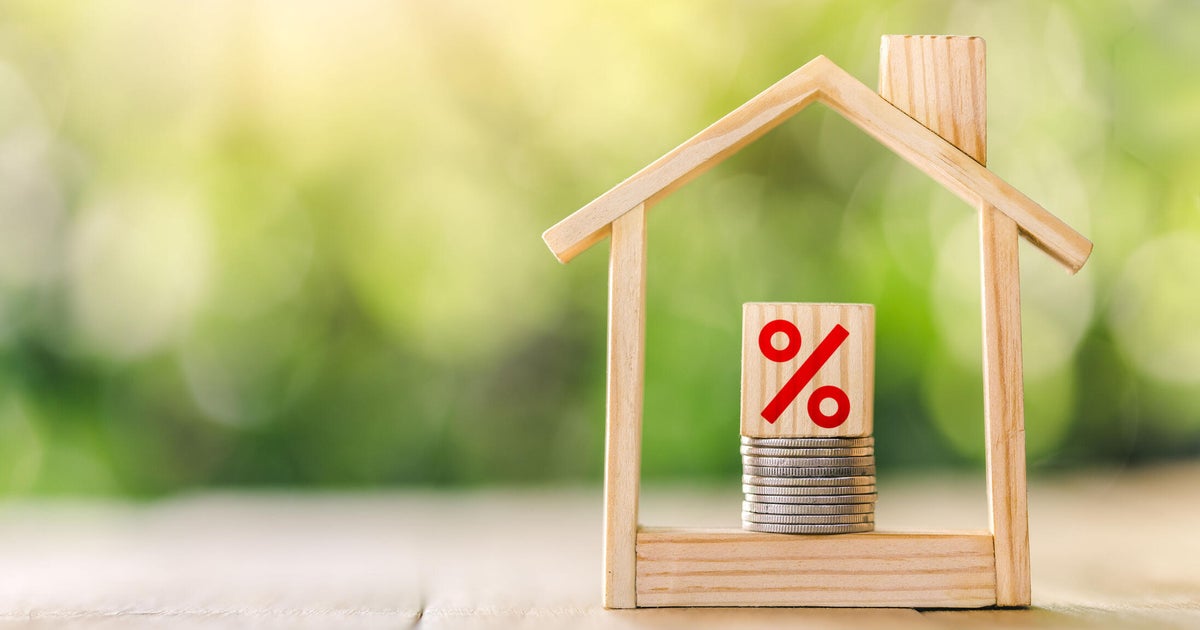3 ways seniors should tap into their home equity, according to experts
Home equity products have been a popular method of financing in recent years, largely thanks to housing market conditions and high interest rates.
For one, home prices have been on the rise for some time, leaving many homeowners with serious equity to tap. In addition, interest rates on credit cards have skyrocketed (with the average rate now above 21%). Since home equity products typically have much lower rates comparatively — home equity loans have rates that currently average between 8% to 10% — they make for a much more affordable financing option.
Seniors, in particular, can see big benefits from tapping their home equity these days. Not only can it supplement retirement income, but it can be used for any purpose — making your house more accessible, paying off debts or even helping your grandkids through college.
Learn more about today's top home equity loan options here.
3 ways seniors should tap into their home equity, according to experts
There are many ways to tap your home equity. Are you a senior considering using your equity to your advantage? Here are the best ways to do it, according to financial pros.
Reverse mortgage
One of the best ways for seniors to tap their home equity, experts say, is through a reverse mortgage — also called a Home Equity Conversion Mortgage.
With these loans, seniors won't make monthly payments, but instead get paid — out of their home equity — by their lender. These payments can be made monthly or as one lump sum. You can also opt for a line of credit that can be used as needed.
"The homeowner stays in the home and they no longer have a mortgage payment," says Rose Krieger, a senior home loan specialist at Churchill Mortgage. "This frees up funds for them to do the things they need and want as they enter their golden years."
Reverse mortgages accrue interest just like any other loan, but that interest — and the balance you borrow — won't be due until you sell the house, permanently move away or pass on.
"The biggest con to a reverse is that someday when you pass, your heirs will have a larger loan on your home to deal with," says Aaron Gordon, branch manager at Guild Mortgage. "They'll have a year to figure out if they want to sell, refinance, or pay it off."
Find out the top home equity loan rates you could qualify for here.
Home equity loans and HELOCs
Home equity loans — a type of second mortgage — are another way seniors can borrow from their home equity. These loans offer a lump sum payment after closing and come with regular monthly payments from the start of the loan (making them best for seniors with a healthy amount of reliable income.)
Home equity lines of credit, or HELOCs, are also a smart option for seniors, too, experts say. These turn your equity into a credit line that you can withdraw money from, typically for 10 years.
"It's a revolving line of credit, meaning you take funds out, make payments on it and then funds are again available to use," Krieger says. "It functions like a credit card, but the collateral is your home."
HELOCs can be helpful if you're not sure how much you'll need or you want access to money over a long period of time — maybe to fund home accessibility renovations, for instance. They also typically require interest-only payments for the first decade of the loan, which can reduce financial stress if you're on a fixed income.
Home equity investments
Seniors can also consider home equity investments, which let you sell a portion of your home's future value in exchange for a lump sum of money. There are no monthly payments, and you only pay the investor once you sell the home or reach the end of your term (which can be anywhere from 10 to 30 years).
"Homeowners continue to live in their home as usual," says Michael Micheletti, communications officer at home equity investor Unlock. "They maintain full control over it."
Many companies offer home equity investments these days, including Unlock, Unison, Point, Hometap and Splitero.
One option to avoid: Cash-out refinancing
Though a cash-out refinance is certainly an option for accessing your home equity, experts don't advise it in this market. Since refinancing requires replacing your main mortgage with a loan that has new terms and a new rate, doing so now would result in a significant interest rate increase for most homeowners.
"What is their current interest rate?" Krieger asks. "Will the new rate of a cash-out be higher than their current rate? This could mean that their new mortgage payment will be higher than their current payment."
According to real estate brokerage Redfin, nearly 92% of homeowners have a current mortgage rate under 6%. For seniors in this group, refinancing would mean getting a new loan at today's rates, which average just over 7%.
"Cash-out refinances were popular a couple of years ago when interest rates were very low, but with today's rates, are generally not the best option," Micheletti says.
The bottom line
Whatever type of home equity product a senior chooses, shopping around is an essential component of getting the best rate. Get quotes from at least a few companies and compare each on rates, fees, terms and other details. If a rate you're quoted seems too high, consider improving your credit score and reapplying later on. Typically, borrowers with higher credit scores get the best rates.




